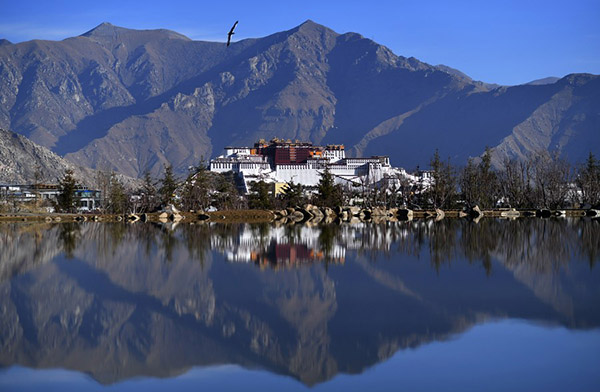Tibet focusing on people's livelihoods
Updated: 2021-05-24 By LIU WEILING,DAQIONG and PALDEN NYIMA in Lhasa (China Daily)  Print
Print 



Photo taken on March 12, 2021 shows the Potala Palace in Lhasa, capital of Southwest China's Tibet autonomous region. [Photo/Xinhua]
Ecological protection
While making improving people's livelihoods a top priority, the region is also carefully balancing that task along with ecological protection efforts.
"Hailed as the 'Roof of the World', the 'Water Tower of Asia' and the 'The Third Pole of the Earth', the Qinghai-Tibet Plateau is often regarded as a haven for wildlife and a gene pool of plateau species, as well as a key ecological safety barrier for China and even Asia," Wu said.
Placing more than half its land area under the strictest ecological supervision, the region prohibits any industries or projects involving heavy pollution, high energy usage or excessive water consumption.
"Tibet will continue to develop an ecological civilization … and we will continue to safeguard the national ecological safety barrier during the 14th Five-Year Plan period (2021-25)," Wu said.
"We make all these efforts to make the mountains greener, the waters clearer and the sky bluer," Wu said.








